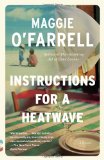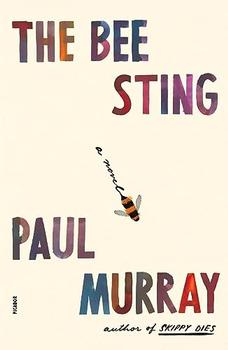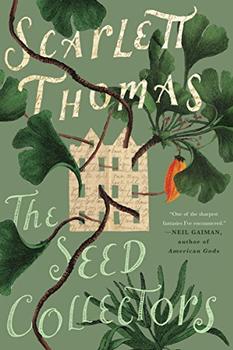Summary | Excerpt | Reading Guide | Reviews | Beyond the book | Read-Alikes | Genres & Themes | Author Bio

Sophisticated, intelligent, impossible to put down, Maggie O'Farrell's beguiling novels blend richly textured psychological drama with page-turning suspense. Instructions for a Heatwave finds her at the top of her game, with a novel about a family crisis set during the legendary British heatwave of 1976.
Sophisticated, intelligent, impossible to put down, Maggie O'Farrell's beguiling novels - After You'd Gone, winner of a Betty Trask Award; The Distance Between Us, winner of a Somerset Maugham Award; The Hand That First Held Mine, winner of the Costa Novel Award; and her unforgettable bestseller The Vanishing Act of Esme Lennox - blend richly textured psychological drama with page-turning suspense. Instructions for a Heatwave finds her at the top of her game, with a novel about a family crisis set during the legendary British heatwave of 1976.
Gretta Riordan wakes on a stultifying July morning to find that her husband of forty years has gone to get the paper and vanished, cleaning out his bank account along the way. Gretta's three grown children converge on their parents' home for the first time in years: Michael Francis, a history teacher whose marriage is failing; Monica, with two stepdaughters who despise her and a blighted past that has driven away the younger sister she once adored; and Aoife, the youngest, now living in Manhattan, a smart, immensely resourceful young woman who has arranged her entire life to conceal a devastating secret.
Maggie O'Farrell writes with exceptional grace and sensitivity about marriage, about the mysteries that inhere within families, and the fault lines over which we build our lives—the secrets we hide from the people who know and love us best. In a novel that stretches from the heart of London to New York City's Upper West Side to a remote village on the coast of Ireland, O'Farrell paints a bracing portrait of a family falling apart and coming together with hard-won, life-changing truths about who they really are.
Maggie O'Farrell's investigation of the three characters, all related by blood but astoundingly different, creates a vibrant portrait of what it means to create the life you want, versus the life you were conditioned to have...continued
Full Review
 (871 words)
(871 words)
(Reviewed by Sarah Sacha Dollacker).
The heatwave described in the novel is based on an actual one that took place in the summer of 1976 in Britain, which was preceded by a dry period that began the previous year. At the time this had been the driest 16-month period in over 250 years. Though there was some rain during that summer, it was so little and sporadic that it didn't make much of a dent. The reservoirs ran dry, companies in the Midlands (central England), were forced to shorten their work week, and many households were required to gather their water from communal hand pumps in the street. People were advised to "Save water, bathe with a friend," to do so in no more than five inches of water and to then reuse that bath water in the garden. Bricks were put in toilets so ...

If you liked Instructions for a Heatwave, try these:

by Paul Murray
Published 2024
From the author of Skippy Dies comes Paul Murray's The Bee Sting, an irresistibly funny, wise, and thought-provoking tour de force about family, fortune, and the struggle to be a good person when the world is falling apart.

by Scarlett Thomas
Published 2017
The Seed Collectors is a tale of inheritance, enlightenment, life, death, desire and family trees by a literary star in the UK.